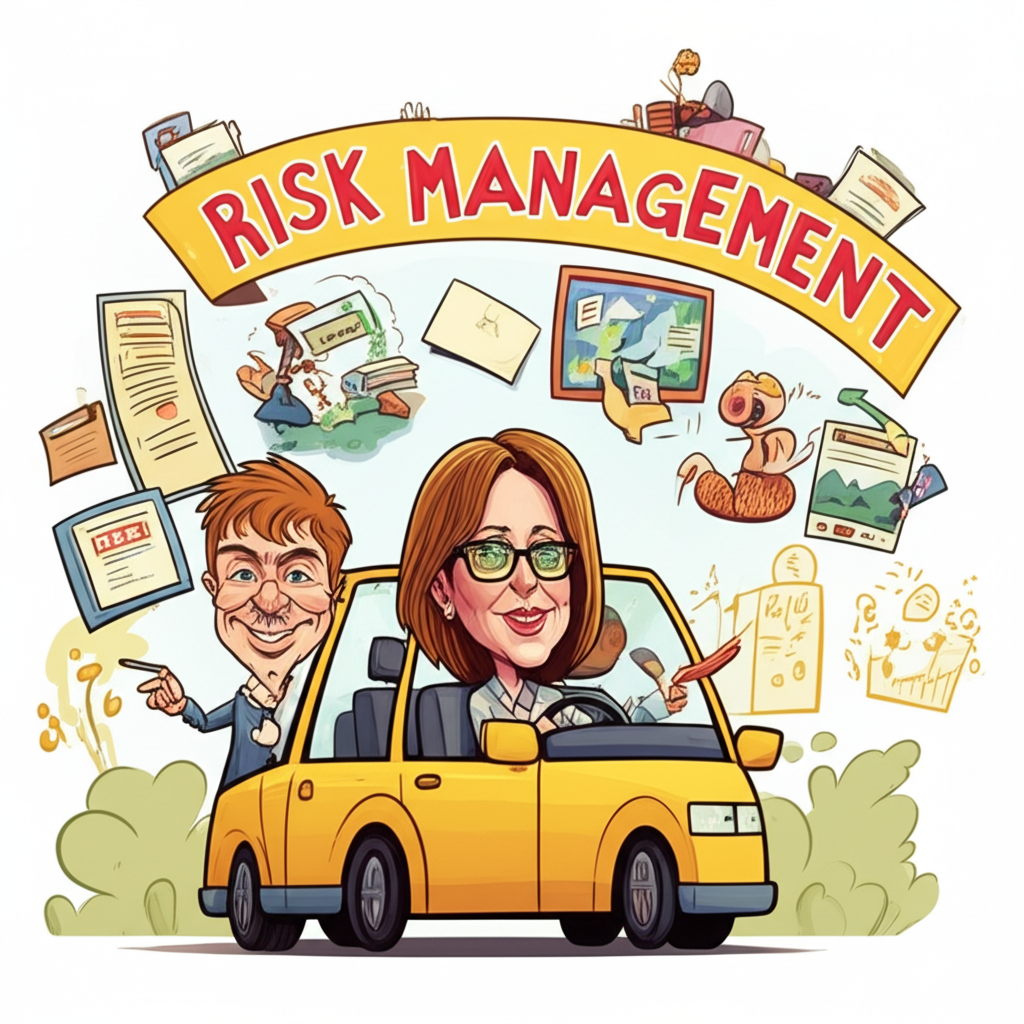
Article 1: The Fiduciary: A Myth, A Legend, A Very Good Investment Strategist
By Finny McNickel, Contributing Editor, The Penny-Pinching Post
Have you heard whispers of them? Seen a fleeting glimpse of a subtle halo in the dim light of a financial planning office? We’re talking, of course, about the Fiduciary Advisor – the mythical creature of Wall Street, the ethical unicorn of asset management, the financial professional who, rumor has it, actually puts your interests before their own.
For years, many believed them to be mere folklore, a pleasant bedtime story for nervous investors. "Oh, wouldn’t it be grand," we’d sigh, "if there was someone who had to act in my best interest, who couldn’t secretly funnel me into a high-commission product just to line their pockets?" Well, dear reader, pinch yourself, because they are real. And they are… intense.
Imagine a financial advisor who treats a "free" branded pen from a mutual fund company like a ticking time bomb of conflicted interest. They’ll examine it under a magnifying glass, question its provenance, and then politely decline, lest the sheer thought of that pen subtly influence their decision to recommend a fund that pays them a bonus. It’s truly a sight to behold.
What Makes Them So… Fiduciary?
At their core, a fiduciary advisor operates under a "fiduciary duty." This isn’t just a fancy phrase; it’s a legal and ethical obligation to act solely in your best interest. Think of it as the Hippocratic Oath for your money. They are bound to:
- Prioritize Your Interests: Their financial well-being trumps their commissions, their firm’s quotas, and even their burning desire for a new, slightly-too-expensive espresso machine.
- Act with Utmost Good Faith: They must be honest, transparent, and loyal. No shady backroom deals, no hidden fees, no recommending a product they wouldn’t put their own (ethically-sourced) money into.
- Disclose Conflicts of Interest: If there’s even a sniff of a potential conflict – say, their cousin owns shares in a company they’re recommending – they have to tell you. In excruciating detail. Probably with charts.
The Downside (for them, not you):
Being a fiduciary is hard work. It means constant vigilance against the siren song of higher commissions. It means endless disclosure forms that read like a legal thriller. It means explaining why they chose that particular low-cost index fund over the flashy, high-fee alternative (which, frankly, you probably saw advertised during the Super Bowl).
So, next time you encounter a fiduciary advisor, perhaps offer them a warm, non-commission-generating beverage. They’re out there, fighting the good fight, one ethically-sound investment decision at a time. And who knows, they might just help you achieve your financial goals without accidentally funding their yacht. Unless, of course, your financial goal is to buy them a yacht, in which case, they’d still have to disclose that potential conflict. Bless their hearts.
Article 2: Confessions of a Fiduciary: My Daily Battle Against the Dark Side (of Commissions)
By "Ethical Ed" – As Told to Money & Mayhem Monthly
You think my job is easy? You think I just sit here, sipping my ethically-sourced artisanal water, making serene investment decisions? Hah! Every single day is a grueling, mind-bending struggle against the very fabric of temptation.
Take this morning, for instance. I walk into the office. The sun is shining. My conscience is clear. Then I see it: a brochure for a new, very exciting structured product. It promises high returns! It has a fancy graph! And the commission… oh, the commission! It’s enough to make my inner capitalist do a little jig.
But then, the Fiduciary Force Field™ kicks in. A small, stern voice in my head (which sounds suspiciously like my compliance officer) whispers, "Is this truly in the client’s best interest? Or is it in your interest to finally replace that slightly-worn ergonomic chair?"
The struggle is real, folks. I mean, I could recommend a fund that pays me 1.5% annually, even if there’s an identical one that pays me 0.25% but has lower fees for the client. The difference? A new watch! A slightly less embarrassing car! But no. The Fiduciary Oath, woven into the very fabric of my being (and my employment contract), screams, "For shame, Edward! For shame!"
The Perils of Free Pens and Fancy Dinners:
You wouldn’t believe the temptations. Fund companies send branded pens. Branded pens! I once almost accepted a particularly smooth-writing one, only to have a sudden existential crisis. What if the mere possession of that pen subtly influenced my judgment? What if, in a moment of weakness, I subconsciously leaned towards their fund just because their pen felt so good in my hand? I immediately donated it to a local charity, along with a written disclosure explaining my brief moment of ethical lapse.
And the dinners! Oh, the lavish, delicious dinners. A steak that melts in your mouth, fine wine, stimulating conversation. All provided by a purveyor of, say, high-fee annuities. Do you know how hard it is to maintain a poker face and politely decline to discuss specific products while savoring a perfectly seared scallop? It’s an Olympic sport, I tell you. My internal monologue during these events is pure chaos: "Mmm, this wagyu is exquisite. Now, how do I pivot this conversation back to the client’s low-cost diversified portfolio without seeming ungrateful for the wagyu?"
The Weight of Best Interest:
It’s a heavy burden, this "best interest" thing. Every recommendation, every portfolio adjustment, every piece of advice – it all has to pass the "Would I recommend this to my own incredibly discerning, financially savvy, and slightly judgmental grandmother?" test. And let me tell you, Grandma Ethel is not easily impressed by high expense ratios.
So, while you’re out there enjoying your commission-free life, spare a thought for us fiduciaries. We’re the unsung heroes, the ethical gladiators, constantly battling the forces of self-interest, one transparent fee schedule at a time. And if you see me muttering to myself in the corner, don’t worry. I’m probably just having an internal debate about whether accepting a compliment on my tie constitutes a "conflict of interest."
Article 3: Are You Fiduciary-Curious? A Humorous Field Guide to Spotting the Elusive Ethical Advisor
By Prof. Ebenezer Scrooge (reformed), Dept. of Behavioral Finance, University of Misplaced Funds
For years, distinguishing a true fiduciary from a mere "suitability standard" advisor (who, bless their hearts, just needs to recommend something "suitable," like a comfortable pair of shoes, even if a tailored orthotic is better) was akin to identifying Bigfoot. But fear not, intrepid investor! Our research has uncovered key behavioral traits that give away these rare, ethically-bound creatures.
1. The Halo Test (Subtle Edition):
- Myth: They literally glow.
- Reality: While a full-blown angelic aura is rare, look for a subtle, almost imperceptible shimmer around their head, especially when discussing expense ratios. This is often accompanied by a soft, ethereal hum (which some attribute to the sound of their internal compliance department perpetually auditing their thoughts).
2. The Coffee Conundrum:
- Behavior: They will meticulously inquire about the sourcing of the coffee in their office. Is it fair trade? Is the roaster publicly traded? Does the company have any hidden revenue streams from advising on competitive coffee bean futures?
- Why: Even a simple cup of Joe can be a gateway to a perceived conflict of interest. They’re not just drinking coffee; they’re upholding the integrity of the entire financial ecosystem, one ethically-sourced bean at a time.
3. The Fee Fanatic:
- Behavior: They will discuss their fees with the enthusiasm of a child explaining their favorite dinosaur. They’ll break it down, itemize it, probably offer a pie chart. They might even encourage you to shop around for lower fees elsewhere, just to prove they’re not trying to fleece you.
- Why: Transparency is their superpower. They want you to know exactly what you’re paying for, because they are confident that what you’re paying for is your best interest, not their second vacation home.
4. The Gift Gauntlet:
- Behavior: Offer them a modest gift – a fruit basket, a token of appreciation. Watch as they carefully inspect it for any hidden incentives, potential kickbacks, or subliminal messages from a product provider. They might politely decline, or accept it only after signing a detailed disclosure form stating that it will in no way influence their financial recommendations.
- Why: Fiduciaries are pathologically allergic to anything that even smells like a conflict of interest. A free golf club cover? That’s a direct threat to their ethical purity!
5. The Disclosure Deluge:
- Behavior: Prepare for paperwork. Lots and lots of paperwork. Every potential conflict, every nuance of their fee structure, every single reason why their advice is in your best interest will be meticulously documented and presented to you. Possibly in triplicate.
- Why: It’s not just about being ethical; it’s about proving they’re ethical. And in the world of finance, proof comes in the form of documents that could wallpaper a small country.
Conclusion:
While their dedication to your financial well-being might seem almost comically virtuous, rest assured, it’s a very real and beneficial standard. So, if you encounter a financial advisor exhibiting these peculiar (but ultimately reassuring) behaviors, don’t be alarmed. You’ve simply found yourself in the presence of the elusive, the admirable, the slightly-too-earnest Fiduciary Advisor. And your wallet will thank you for it.



Post Comment